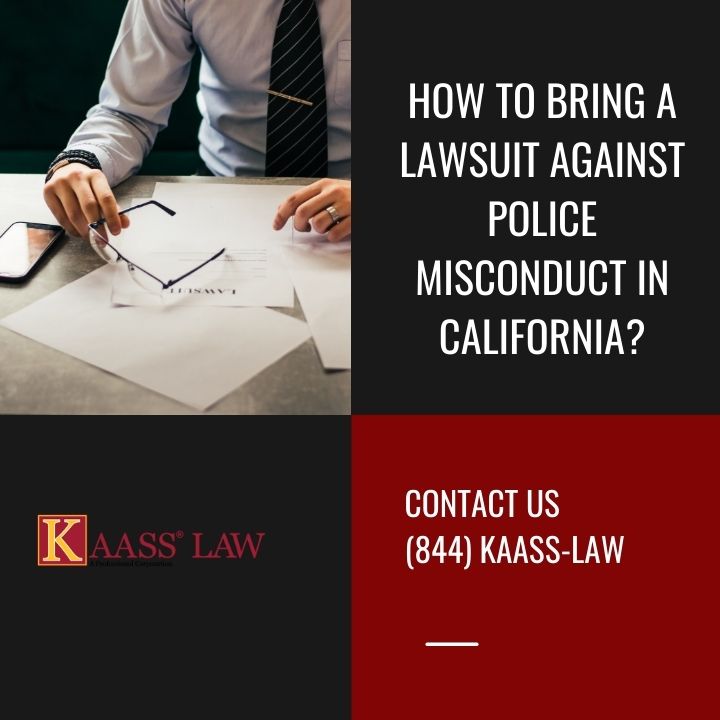In California, victims of police misconduct, brutality, or excessive force can file a lawsuit. Typically, the lawsuit is based on civil rights violations. The victim may be awarded monetary damages in the lawsuit. It can also seek an injunction to prevent future wrongdoing. Also, it’s possible that the officer will face criminal charges as a result of this.
What Is a Police Misconduct?
The term “police misconduct” refers to police officers who engage in illegal or inappropriate behavior. Discrimination, obstruction of justice, and other forms of police misconduct are examples of misconduct. Police misconduct is the illegal behavior of police officers, which takes various forms such as:
- Unlawful detention
- Police brutalities and use of excessive force
- Actions conducted by the police officer on reliance on racial profiling
- The false arrest of the victim
- Inappropriate use of police dogs
- Sexual harassment
These actions result in violations of the civil rights of the plaintiff, guaranteed by the U.S. Constitution, such as the right of the freedom from unreasonable searches and seizures, right to privacy, etc.
Who Are the Addresses of the Civil Lawsuits?
The respondents are police officers, sheriffs, other officers, representing law enforcement agencies.
A bright example of police brutality is the use of excessive force by the police. This misconduct usually happens when the police try to arrest someone. As to the law, the police can use force during an arrest, however, only such force is reasonably necessary for the arrest. Taking into account the fact that the victim can run away from the police, can resist, etc.
On a case-by-case basis, courts consider whether the use of force was reasonable and proportionate to the arrest, or whether the use of force surpasses the necessary and desirable threshold.
Racial Profiling as a Form of Police Misconduct
Though we live in a developed society of the 21st century, racial profiling can still be an issue. Everyone enjoys equal protection under the law and racial profiling cannot serve as a ground to suspect people of committing a crime.
A person can file a lawsuit against the police officer if he proves that the unlawful detention, searches or seizures, or other actions conducted by the police officer were based on racial profiling.
A False Arrest as a Type of Police Misconduct
An arrest is when someone’s freedom of movement is intentionally restricted. The person is forced to stay or go somewhere against his will as a result of the deprivation.
A false arrest occurs when a peace officer has no legal authority to make an arrest. False arrests are a violation of the victim’s right to due process under the Fourth Amendment. False imprisonments are another name for them. They may occur when:
- Without a warrant or probable cause, police make an arrest.
- To make an arrest, police use an invalid arrest warrant.
Without a warrant, some victims are detained. In these situations, the officer must demonstrate that he or she had probable cause. This necessitates demonstrating that there was reasonable cause to believe the person arrested had committed one of the following crimes:
- committing a felony
- any crime committed in the presence of the officer
Other arrests are made on the basis of a warrant. Even if the warrant was invalid, these could still be false arrests.
What Other Options Do I Have If I File a Lawsuit Against the Officer?
If the police officer found evidence during the misconduct (for example, during unlawful seizures and searches), the plaintiff can ask the court to exclude such evidence from the case. Other types of claims are possible to file against the police officer. The plaintiff can file a section 1983 claim or Biven’s lawsuit against the police.
What is the Difference Between the Section 1983 Claim and Biven’s Lawsuit?
Section 1983 claims can be filed for violations done under color of law, which means, conducted acts are legitimized by and are related to the role of the officer. Such lawsuits can be filed to receive such remedies as compensation for caused monetary damages or injunction by the court. Biven’s claim is quite similar to the section 1983 lawsuit. However, it can be filed against such federal actors as DEA (Drug Enforcement Agency) FBI officers.
Glendale Personal Injury Lawyer
Contact our Glendale personal injury lawyer today for a consultation and case review. Please feel free to give our office a call at 310.943.1171.

